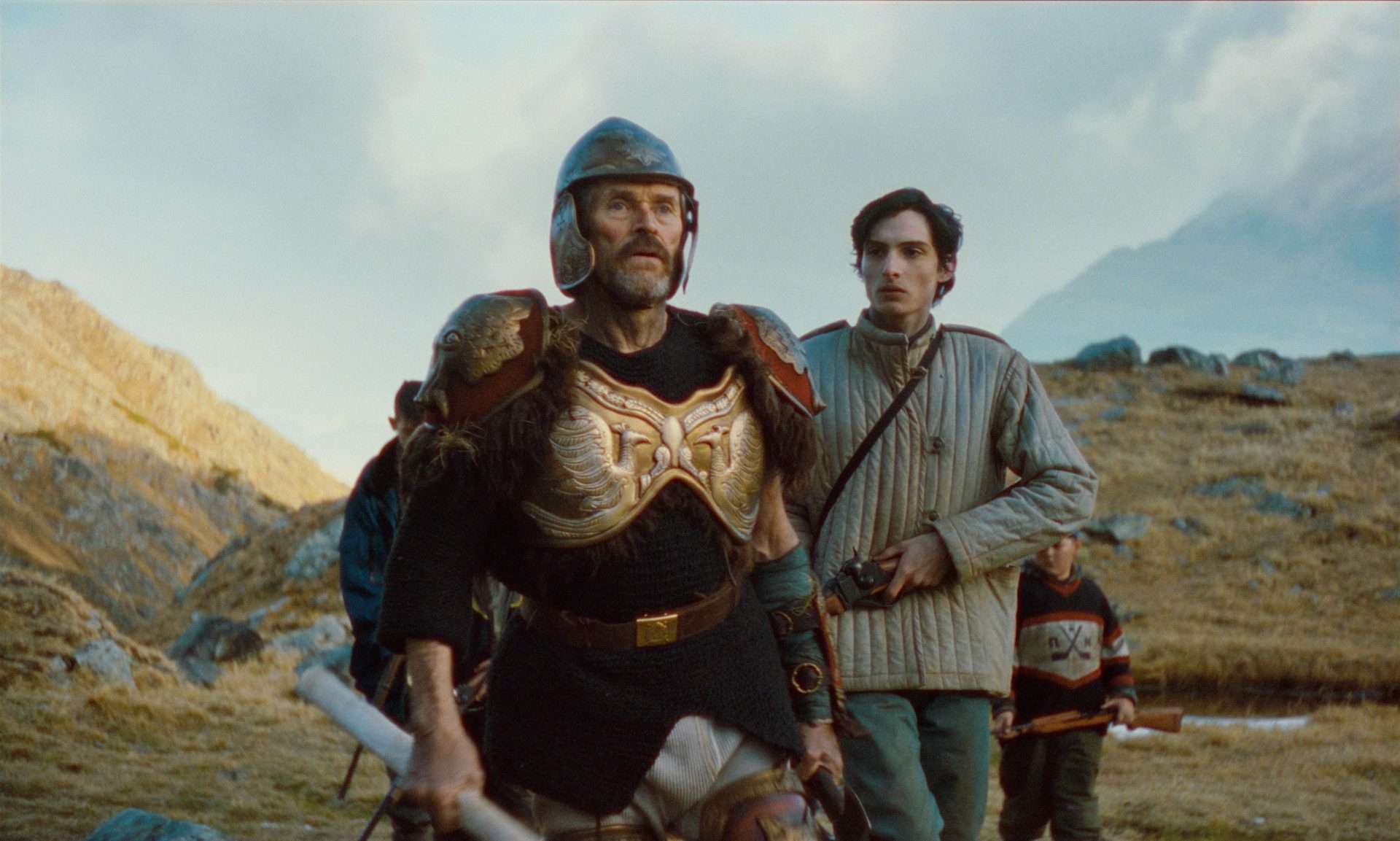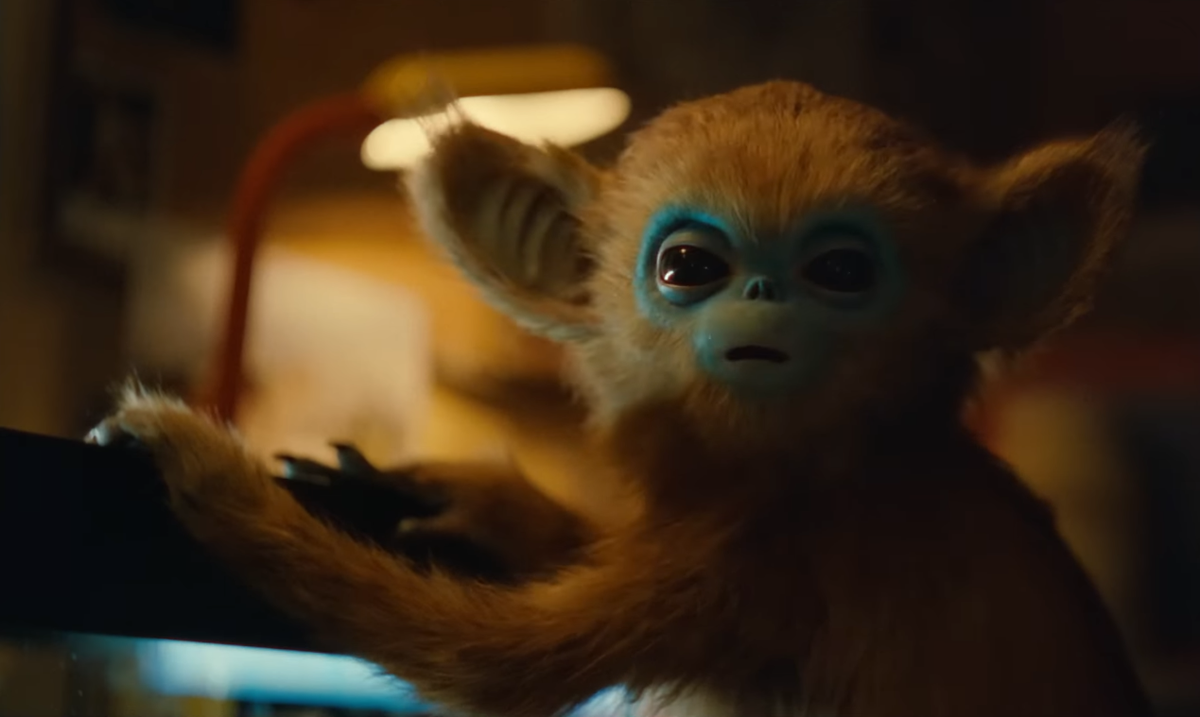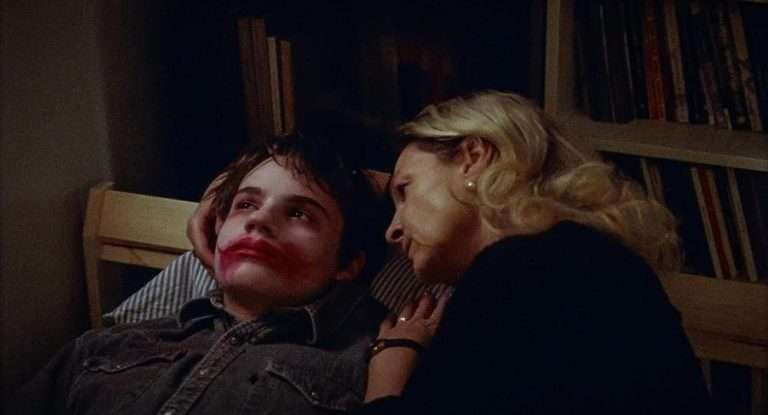Legends are, by their very nature, stories embedded in our cultures, told time and time again until the details become a haze of smoke that envelops the society in which we live down to its very core. “The Legend of Ochi” acts, in that sense, as a willful study in contradiction often seen in modern storytelling; its own legend is one ingrained within the world of the story presented—given the same ancestral weight as a real-life legend—all the while itself being an invention conjured up for the sake of this new narrative.
Isaiah Saxon’s directorial debut is quite adamant about its originality, in fact, utilizing the mythos of the ochi to add credence to a land inhabited by the stories of its residents just as much as by the residents themselves. The irony of this fact, however, is that in purporting to be a bastion of original storytelling, “The Legend of Ochi” may very well be a film without a single idea not presented elsewhere, and better, on prior occasion.
This particular legend follows the world of the titular ochi, a group of ape-like beasts living deep in the wilds of the fictional island of Carpathia. A land trapped somewhere between ages—Saxon indicates this visually with a horse-drawn carriage being passed on the road by a beat-up SUV—Carpathia is defined just as much by the anachronisms of its relationships with technology and antiquity as by the presence of the ochi as this reclusive, bloodthirsty monster to be hunted down ritualistically.

This all changes when Yuri (Helena Zengel), after her first rite-of-passage hunt led by her headstrong father (Willem Dafoe, because damned if he won’t find his way into every offbeat indie on the market!), finds a wounded baby ochi out near her home. Something about this first encounter—something you’d hope, in vain, that the film might be gearing up to explore—compels Yuri to take the creature home with her, and subsequently embark on a quest to return the infant to its own tribe out in the treacherous wilderness.
If you read that premise and thought to yourself “That sounds vaguely familiar,” no, you’re not crazy; “The Legend of Ochi” is, in essence, a betrayal of whatever presumed originality lies at the core of its invented world when you come to realize that the entire fabric of this narrative is basically any number of “worlds colliding” stories painted in a veneer of mossy green. Most obviously, many have pointed to “How to Train Your Dragon” as the most apparent blueprint, likely because Saxon’s film, on top of borrowing more than a few beats from films of this variety, also relies on the ever-popular crutch of taking a mythic creature, making it act vaguely like a dog, and hoping people will find it adorable.
To that end, the design of the ochi themselves is likely the most laudable element of Saxon’s vision, as their realization comes thanks to textured puppetry and clearly calibrated sound design; essentially, these things are glorified howler monkeys, but at least they always feel as if they are actually there. This is, of course, in spite of the fact that “The Legend of Ochi” drowns its carefully animated creatures and the people they interact with in so much artificial lighting that any element of Carpathia’s supposed tangibility feels entirely undone the second Saxon steps out for a wide shot or has a character treading through water.

Staid stories and middling lighting have, in the past, not entirely derailed films from potential success, though. “How to Train Your Dragon” may be the most apparent point of inspiration for Saxon’s tale, but it was by no means a mould-breaking film in itself; rather, the DreamWorks film stood out because its characters were given just as much color as the world surrounding them. “The Legend of Ochi,” meanwhile, wastes a collection of indie darlings on a group of nondescript characters with nonexistent motivations or definable traits beyond, occasionally, their wardrobe; if you shuffled every member of this cast and made them play each other’s roles, the film would feel absolutely no different.
In an age defined by a dearth of originality in filmmaking (here’s hoping that this film doesn’t follow the “How to Train Your Dragon” blueprint all the way down to what appears to be a shot-for-shot remake), it makes sense that “The Legend of Ochi” would be marketed and praised as a bastion of ambitious ideas realized on an intimate scale. In execution, however, Isaiah Saxon’s vague outlines of half-baked ideas feel like just that: marketing techniques for the ambiguous promise that something new lies beyond the trees. Like the local legend of the ochi themselves, though, that promise of death-defying adventure has been sorely oversold.






![Forbearance [2022] Review – A badly acted and exhausting cancer-picture](https://79468c92.delivery.rocketcdn.me/wp-content/uploads/2022/09/Forbearance-Movie-Review-768x322.png)

